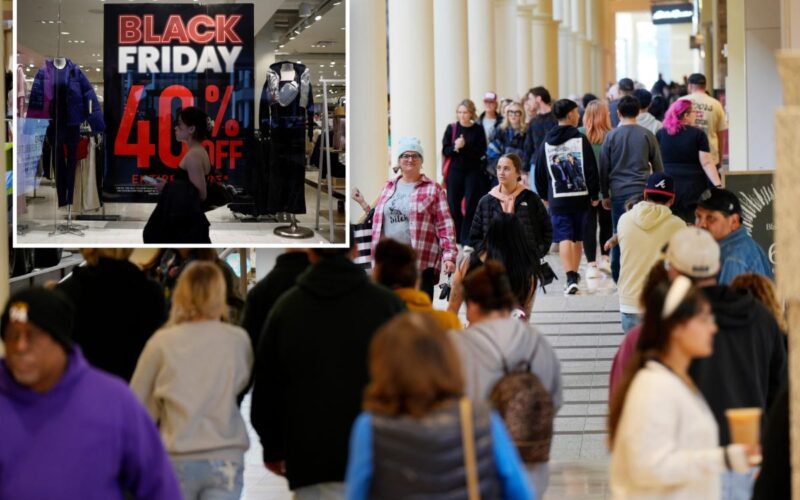Shoppers plan to cut back their spending during the crucial Black Friday weekend for the first time in four years — the latest sign of mounting affordability concerns in the US, according to a survey.
Those who plan to shop during the busy Black Friday and Cyber Monday events expect to spend an average of $622 – roughly 4% less than last year, according to a Deloitte survey of 1,200 US consumers.
The trend is hitting consumers on both ends of the income spectrum.
Shoppers making less than $50,000 a year are expected to spend 12% less than last year, while those earning more than $200,000 plan to cut spending by 18%, according to the survey.
Of those who plan to spend less, 69% cited higher costs of living while 43% blamed financial constraints, according to the survey conducted between Oct. 15 and Oct. 23.
It’s a sharp turnaround in the survey’s findings. For the past four years straight, shoppers had said they planned to spend more than the previous year, according to the survey.
In another sign that shoppers are growing antsy over the economy, more consumers are expected to hunt for discounts and deals this year during the hectic Nov. 27 to Dec. 1 shopping period.
About 82% of respondents said they plan to shop during the weekend, up from 79% in 2024, according to Deloitte.
As retailers offer fewer discounts and high-price holiday items lead to sticker shock, nearly two-thirds of shoppers are planning to use financing options – like credit cards or buy now, pay later apps – to stretch their budgets, according to the survey.
BNPL options – including apps like Klarna, Afterpay and Affirm – allow shoppers to make a purchase and pay it off over time in installments, usually with no interest.
Young shoppers have taken advantage of these apps, with 39% of Gen Zers and millennials planning to use BNPL options to fund their Black Friday hauls, according to Deloitte.
Experts have warned the popular payment options could lead shoppers to overspend and slip into debt.
Americans are not expecting relief anytime soon, expecting inflation to hit 4.5% by next year, according to the University of Michigan’s consumer sentiment survey.
“This season, consumers are eager to find the best deals to wrap up their holiday shopping. They have made their gift lists and are checking Black Friday-Cyber Monday promotions to stretch their budgets,” Natalie Martini, vice chair and leader of US Retail and Consumer Products at Deloitte, said in a statement.
“While we expect shoppers to plan to pull back on spending, we also anticipate strong participation throughout the holiday week, with many planning to blend the convenience of online shopping with the energy of the in-store experience.”
The monthly consumer sentiment reading dropped to 50.3 earlier this month – the lowest level in more than three years and near the worst-ever figure, according to the survey.
Concerns around affordability and sky-high costs propelled Dems like socialist NYC Mayor-elect Zohran Mamdani to victory earlier this month.
That has pushed President Trump to double down on his affordability agenda.
He has vowed to send $2,000 checks to most Americans before the 2026 midterms and slashed tariffs on staple food items like bananas and coffee.
Meanwhile, inflation has heated up to 3% as of September – the fastest rate since January, according to the most recently available Consumer Price Index.
The labor market is still showing signs of weakness, too.
While US employers added a better-than-expected 119,000 jobs in September, the unemployment rate ticked up to 4.4% – its highest level since October 2021, according to the Bureau of Labor Statistics.








